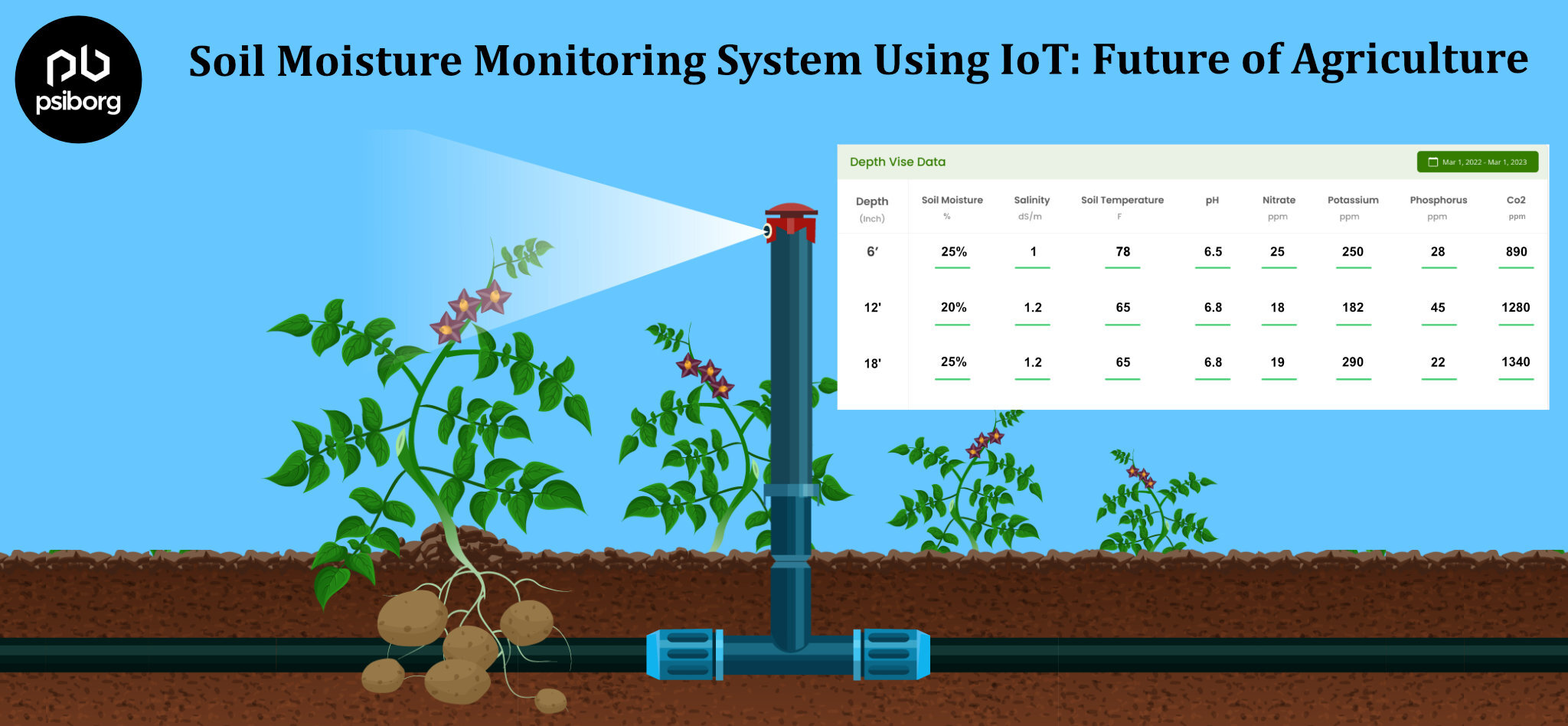In agriculture, soil health and soil nutrients are very important for maximum crop yield. However, to ensure soil health, soil irrigation is very crucial. Because water is an essential source for all living beings.
A good irrigation gives better crops, uses fewer fertilizers, and increases the revenue.
However, when running an agricultural business or owning acres and acres of plantation, traditional irrigation methods fail to produce the desired results. The traditional irrigation method generally relies on decided schedules and guesswork, which often leads to water waste and overwatering even harming plants.
For a profitable, smarter agricultural practice you need a smarter irrigation system. This is where soil moisture sensors and soil moisture monitoring systems come in use.
In this article, we will state everything in detail about soil moisture sensors and soil moisture monitoring systems.
So make sure to read till the end!
Let’s Understand Soil Moisture Monitoring
To understand the workings of a soil moisture monitoring system, let’s first understand soil moisture.
The term soil moisture refers to the amount of water held in the soil.
Moreover, planting trees and crops, where the plant roots would not get adequate water supply through natural sources like groundwater, will restrict plant growth.
Also, different plants have different moisture requirements, and as I previously stated, underwatering or overwatering can limit plant growth.
Some other consequences of improper soil moisture, like overwatering, result in stunted plant growth, fungal disease, and underwatering, which can result in reduced yield.
On the contrary, maintaining an optimal soil moisture level promotes healthy plant growth, improves nutrient uptake, and lowers disease risk.
That is why, there was a need for an autonomous moisture monitoring system.
The Role of Soil Moisture Monitoring System
To explain it simply, the soil moisture monitoring system continuously monitors the moisture level of the soil. If the moisture level of the soil is lower than the recommended value, the system will raise a visual alert and notification. The alert will be received on the mobile app of the farm caretaker.
And from the app, the farmers can automate, i.e., switch on the irrigation pump to water plants.
Now, to state how it works technically, the soil moisture monitoring system contains several soil moisture sensors that are inserted into the soil near the root of the plants.
These sensors collect data and transmit this information to the cloud. On the cloud, the data is analyzed and simplified, this data can be further visualized on mobile or web apps.
Farmers can utilize this data to make informed decisions about their irrigation practices, ultimately, improving crop yield and conserving water resources.
Types of Soil Moisture Sensors
There are several types of soil moisture sensors available, that are used in the soil moisture monitoring system and have their own advantages and disadvantages.
1. Tensiometers
The tensiometer sensors measure the tension force with which the water is held in the soil. It measures the soil moisture level in units of negative pressure, i.e., tension. It’s also the most accurate way to measure soil moisture, but it also requires proper maintenance.
2. VWC sensors
VWC stands for Volumetric Water Content. These sensors measure the actual percentage of present in the soil. It is a bit on the expensive side, but it offers accurate data.
3. Capacitance sensors
The aforesaid sensors estimate the soil moisture level by measuring its electrical conductivity. It is affordable and easy to use, but sometimes its data also gets influenced by the salinity of the soil.
A smart irrigation system or soil moisture monitoring system uses the data collected by these sensors to automate plant watering schedules.
The integration of smart IoT-based technologies into daily agricultural practices enables smart agriculture, and smart irrigation is also one part of the smart agriculture system.
PsiBorg is an IoT service-providing company that develops innovative IoT solutions across all industries and leads in the agricultural sector. They have deployed numerous IoT-based tracking solutions and remote monitoring using IoT solutions in the agriculture sector, visit their website to learn about it.
Nonetheless, PsiBorg’s smart soil moisture monitoring system can be used effectively because the solution they developed can be used in an irrigation shaft that distributes water evenly.
Build your soil moisture monitoring system today with PsiBorg Technologies. Message us with your requirements to get a quote.


